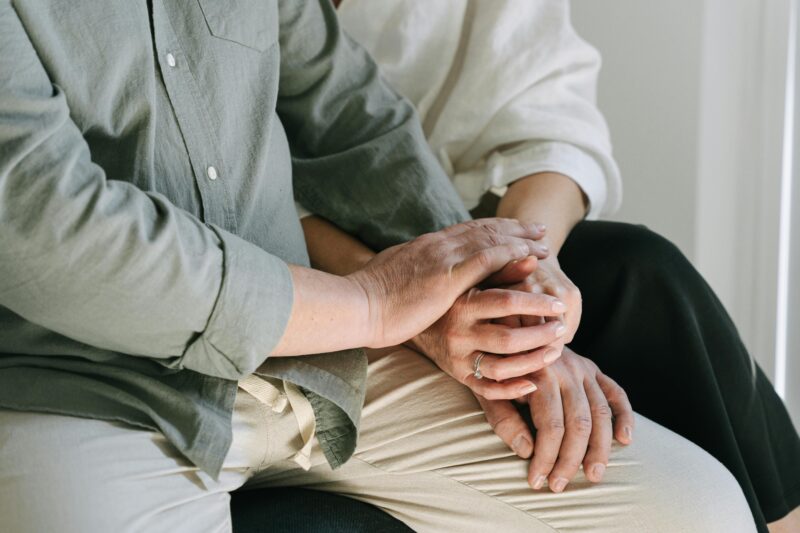Have you ever taken a moment to think about how you react or respond in your close relationships?
Understanding attachment styles can be beneficial for improving your:
- relationship with yourself and others
- communication skills
- emotional regulation
- building deeper connections with those around you.
Attachment styles refer to the way you respond in a relationship and shape the way you connect with others. They’re shaped by early life experiences and influence how you build and maintain healthy social bonds.
There are four types
There are four types of attachment styles. We’ll explain what they are, how they develop, and tips for improving your relationship with others and the world around you.
Secure attachment
People who identify as secure are typically more confident in expressing their emotions and can comfortably seek support from their partner.
In childhood, a securely attached person may have had their physical and emotional needs fulfilled by their primary caregiver. This experience allows them to create a foundation of security and trust that shapes healthy future relationships.
People with secure attachment are usually:
- Able to regulate emotions
- Trusting
- Effective communicators
- Comfortable with being alone
- Good at self-reflection
- High in self-esteem
- Emotionally available.
Secure attachment is a healthy attachment style to have. If you want to work towards creating secure attachments, you can do so through engaging in therapy, practicing mindfulness and self-reflection, surrounding yourself with supportive and emotionally available people and being more self-compassionate.
Avoidant attachment
People with avoidant attachment tend to be more self-reliant and struggle with emotional intimacy. They’re also usually distrusting in others.
People may develop this attachment style when they don’t receive sufficient emotional support during childhood. Although they may receive adequate physical support, their emotional needs are typically neglected. Thus, causing them to become self-reliant individuals.
Adults with avoidant attachment typically:
- Avoid emotional/ physical intimacy
- Have a strong sense of independence
- Are uncomfortable with expressing their feelings
- Dismiss others
- Do not trust others
- Have commitment issues
- Spend more time alone.
These individuals can work towards improving their trust in others and developing healthy relationships by setting boundaries, practicing self-compassion, working on improving their communication, and practicing seeking support from others.
Anxious attachment
Anxious attachment comes from a fear of abandonment and needing closeness from other individuals. These people tend to doubt their self-worth and worry about the intentions of their loved ones.
It usually develops in people who had inconsistent caregivers during childhood. As a result of unavailability, they start to fear abandonment and need constant reassurance or validation.
Signs that someone may experience anxious attachment include:
- A need to cling to people
- Seeking constant approval from others
- Low self-esteem
- Difficulty with trusting others
- A fear of rejection
- Jealousy
- Feelings of unworthiness.
If this sounds like you, you might consider engaging in more activities that build self-confidence, practice affirmations and self-compassion, and engage in mindfulness activities. You might benefit from seeking professional support and counselling.

Disorganised attachment
Although less common, this attachment style is quite extreme and can cause people to act irrationally and be unpredictable in their relationships.
It usually stems from childhood trauma, neglect, or abuse. During childhood, their primary caregiver may have been erratic or incoherent. Thus, causing them to struggle with building trust in others and feeling emotionally overwhelmed, as adults.
Signs of disorganised attachment include:
- Flipping between needing closeness with a partner to withdrawal to protection from harm
- Fear of rejection
- High levels of anxiety
- Distrust in others
- Signs of both avoidant and anxious attachment styles
- Contradictory behaviours
- Difficulty with regulating emotions.
Counselling, particularly trauma-informed therapy to address underlying relational trauma, is highly recommended for those who experience disorganised attachment. As individuals work to resolve trauma, they may work on other strategies to develop self-awareness, self-regulation and cultivating healthy relationships.
Support for your relationships
Anglicare Southern Queensland’s Family and Relationship Counselling Services are designed to support individuals, couples and families. Our qualified counselling team work in a safe, compassionate and non-judgmental manner to support you through difficult times and move towards a brighter future.
We can provide couples counselling, family counselling, grief and loss counselling and counselling for children and youth. Find out more by visiting our Family and Relationship Counselling page or by calling our team on 1300 114 397.
